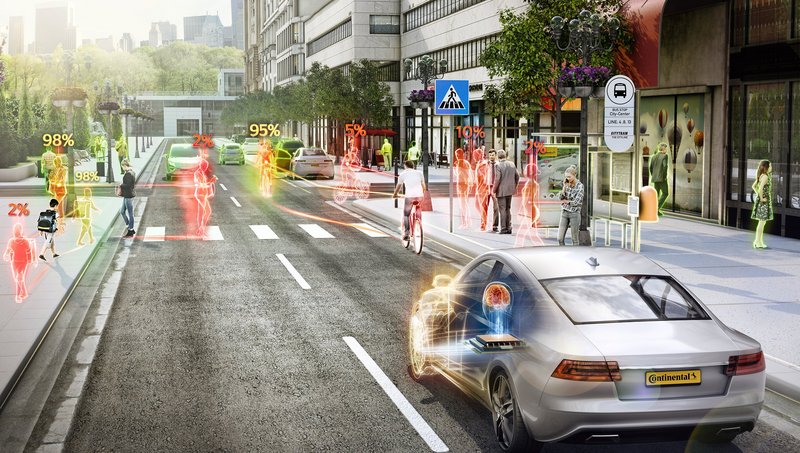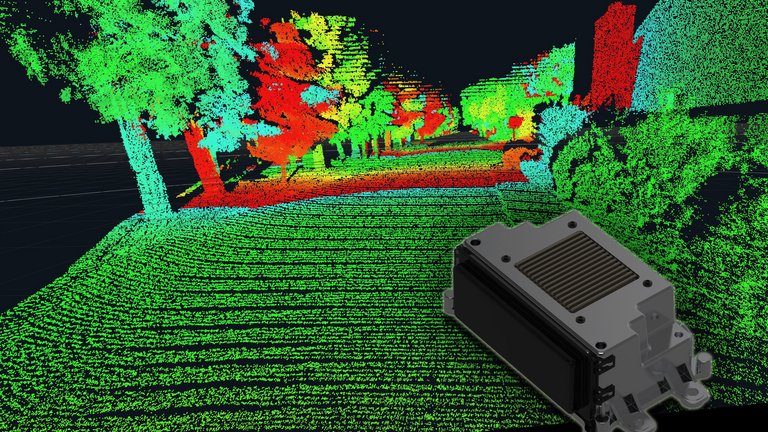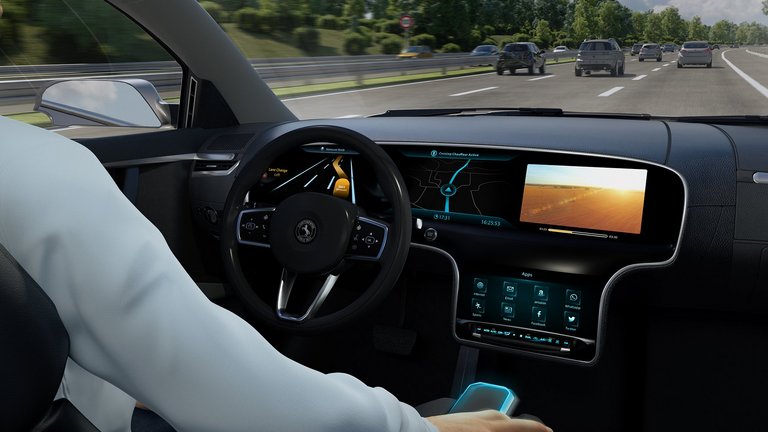AV Regulations
Uniform standards pave the way to autonomous driving
- Working groups of the United Nations Economic Commission for Europe (UNECE) are tasked with creating a uniform regulatory system, the "UN Regulations," for vehicle manufacturing to facilitate international trade. The Groupe Rapporteur de Automation (GRVA) is responsible for autonomous driving.
- Initial guidelines for type approval of automated driving functions are expected to be available in 2023, allowing UNECE contracting states, China and the U.S. to create approval regulations for automated vehicles.
- Continental participates in the UNECE / GRVA meetings in an advisory capacity as a member of the European Association of Automotive Suppliers, or CLEPA for short - with the aim of bringing automated and autonomous driving onto the road safely and with social acceptance.
- The requirements for automated vehicles are becoming increasingly complex, so that in addition to audits and vehicle tests, virtual testing, road tests and in-service-monitoring and reporting will also become relevant in the future as an instrument for market monitoring.
Whether and when autonomous driving is possible on European roads is decided to a large extent by the United Nations. Their draft laws regulate the industry, provide the legal framework, and create global standards. As part of the advisory body, Continental is actively involved in the debates - and is helping to make autonomous driving a reality.
The use of new technologies also requires new rules for dealing with them - in this context, autonomous driving is a particularly hot topic. Who is liable if the technology makes a mistake? How can it be ensured that no-one is harmed? Regulations in the field of autonomous driving are handled by the Economic Commission for Europe, the UNECE. It is made up of the Inland Transport Committee (ITC) and the World Forum for Harmonization of Vehicle Regulations (WP) - including, among others, the Groupe Rapporteur de Automation (GRVA) working group, which looks after automated/autonomous and connected vehicles and reports directly to the WP.29. A meeting is held in Geneva twice a year. The participating contracting states in the GRVA are Europe, Japan and Korea, as well as China, the USA and Canada.
The UNECE is important for the automotive industry due to the 1958 Economic Agreement which regulates that approval of vehicle types by the contracting states are mutually recognized. The UNECE (WP.29) draws up regulations for vehicle components and driving functions, which are then implemented by contracting states.
Continental provides delegation representatives and advises the UNECE
As a member of CLEPA, Continental regularly participates in UNECE meetings. Through its committee work in Geneva, Continental acts as a link between the international working groups, governments and itself. The company has the important task of ensuring that the regulations can be implemented in practice. Continental's experts state what technical requirements are necessary and help to ensure that the laws can be put into practice safely. By participating in the UNECE meetings, the automotive supplier ensures that its technologies are in tune with the times - and that it has a say in important developments. Is there something missing from the portfolio that will be needed in the future? Continental will be the first to know and can react accordingly.
Standards for complex technologies require complex tests
To be able to assess technologies, the meetings include tests and driving demonstrations. "We've already had trucks brake ahead of targets at Geneva Airport so that government representatives can get a feel for how they work and the respective risk levels," says Heiner Hunold, Head of Regulatory Affairs. In summer,
But it is becoming increasingly difficult to estimate worst-case scenarios, because the technologies are becoming more complex and the traffic situations more multi-layered. How, for example, do modern vehicles react under certain weather conditions? This is difficult to display physically, so companies like Continental will increasingly resort to virtual testing methods in the future, that means, software- and hardware-based simulations. In-service-monitoring and reporting will also play an increasing role. This means that types that have already been approved will be monitored during their use in traffic.
From regulations for lane assist systems to fully autonomous driving.
One example that the UNECE is currently working on is uniform regulations for the gradual development from lane-keeping systems to automated highway driving. Since 2014, for example, there have been standards for systems that enable assisted driving with lane-keeping assistants. The driver, however, remains fully responsible and must control the system and perform lane changes manually.
Since 2021, vehicles have been allowed to keep in lane independently on highways up to a speed of 60km/h. The driver is allowed to perform light secondary activities where he still has his hands free - for example, watching a movie via the vehicle display. The first models from Nissan and the Honda Legend already offer such functions. By 2023, Level 3 (L3) and Level (L4) chauffeur-driven systems will be permitted on highways then also at a speed of up to 130 km/h and be allowed to perform autonomous lane changes.
In the future, regulations will develop faster than technologies
Continental wants to play an active role in shaping this change. The whole of Germany is leading the way: only recently, the Bundestag and Bundesrat signed a law that provides for type approval for the operation of level 4 vehicles, i.e. automated and autonomous driving vehicles. This makes Germany the first country in the world to adopt regulations of this kind for the operation of autonomous vehicles.
Hunold explains, "The law is an important milestone for autonomous driving. As a supplier that has been working for years to make technologies in this area fit for practical use, we very much welcome the step. Now we can develop them further and ensure their safety according to uniform standards."
Important UNECE regulations at a glance:
- UN Regulations - 1958 Agreement: provisions relating to safety and environmental aspects for vehicles, their systems, parts and equipment.
- UN GTRs - 1998 Agreement: Globally harmonized performance-related requirements and test procedures for a predictable regulatory framework.
- UN Regulation No. 157 - Uniform provisions concerning the approval of vehicles with regard to the automatic lane departure warning system (ALKS) [2021/389].











